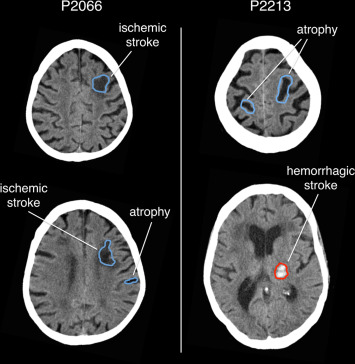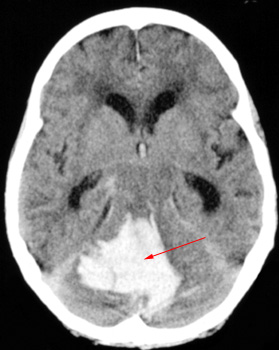What is a Stroke?
- A stroke is a serious condition which appears when blood supply to the brain is slowed or completely blocked which prevents oxygen and nutrients from getting to Brain tissue its more common in people over the ages of 60.
- Strokes can last for several years or even be lifelong and if not treated within the first 24 hours they can be life threatening.
- It is a medical emergency that requires immediate attention.
Symptoms of a stroke
The main symptom of a stroke, that doctors all over the world use to diagnose strokes in patients, is the acronym F.A.S.T- Face - one side of your face has fallen or unable to move parts of your face
- Arm - arm paraylsis or weakness in one arm
- Speech - slurring or having trouble speaking
- Time - if the symptoms above apply to you its time to call 999
However, there are many other symptoms you, or somebody around you, may be having a stroke. Such as, headaches with vomiting, loss of vision in one or both eyes, impaired coordination and difficulty in swallowing.
Other conditions that increase the risk of strokes are:
- High blood pressure (hypertension)
- High cholesterol
- Irregular heart beats (atrial fibrillation)
- Diabetes
Causes of a stroke
There are 2 main types of strokes; ischaemic and haemorrhagic. Both of them affect the brain in diffrent ways and they both have diffrent causes. Ischaemic strokes are due to a lack of blood flow to the brain, there are several factors that lead up to this. Such as:
- Smoking
- Diabetes
- Hypertension
- Dangrous amount of alchol intake
- Obesity
- Cardiovascular diseases
Treatments for a stroke
As mentioned earlier, ischaemic and haemorrhagic have diffrent causes meaning they will need a diffrent cours of treatments. Ischaemic strokes, more often than not, can be treated with thrombolysis "clot buster" medicine. Nevertheless, you can also treat them with a thrombectomy (only used in emergincies), anticoagulants - these reduce the risk of future blood clots forming, blood pressure medicines - these lower your blood pressure if theres high counts of angiotensin-coverting enzyme inhibitors, calcium channel blockers, beta blockers and alpha blockers. On ther other hand, haemorrhagic strokes usually result in emergency surgery. Though, further supportive treatments can be given to manage some of the problems that affect people who suffered a stroke. For instance, you may need a feeding tube, nutrional supplementsts if you're malnourished or fluids given directly into a vein if you're at risk of dehydration.
Take Action
If you or someone else is experiencing symptoms of a stroke, call emergency services immediately. Time is crucial in minimizing the damage caused by a stroke.
Call 999

